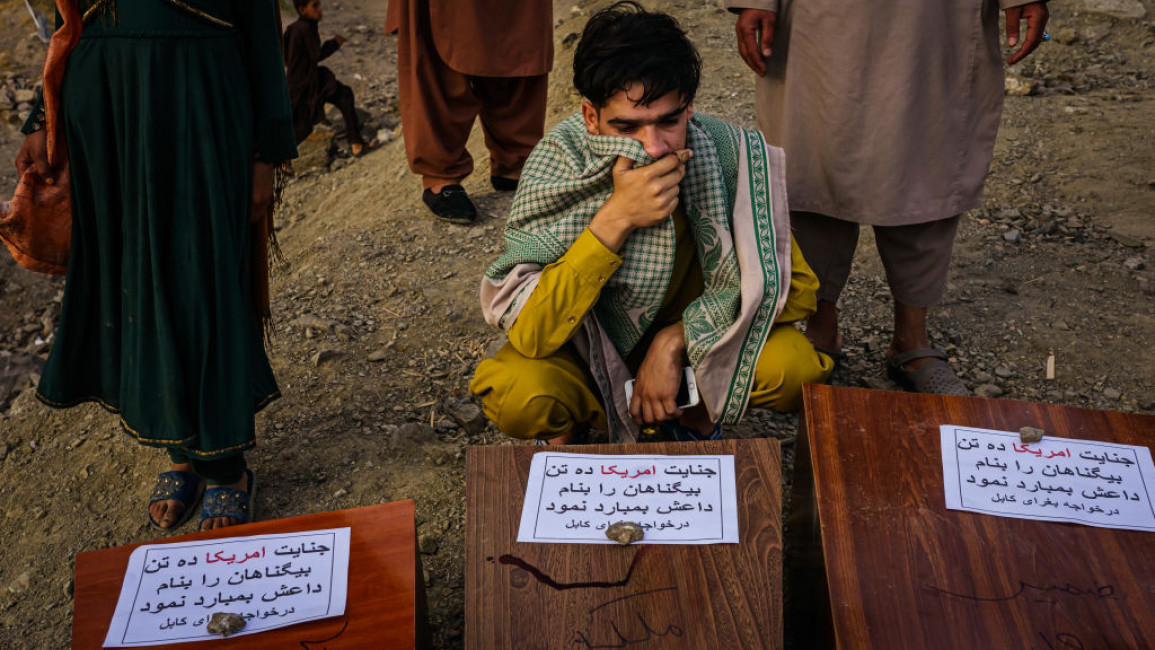US offers compensation to families of civilians killed in Kabul drone strike
The United States may compensate the families of 10 civilians killed in an airstrike on Kabul in August, Pentagon press secretary John Kirby said in a statement late on Friday.
The statement follows a virtual meeting between Pentagon officials and the family of Zamarai Ahmadi, an Afghan aid worker who was killed in the US drone strike, and his employer Steven Kwon, who is the CEO and founder of Nutrition and Education International.
US Under Secretary of Defense for Policy Colin Kahl was also part of the meeting, which discussed the possibility of compensation and relocation but did not officially confirm a compensation plan.
"Dr. Kahl noted that the strike was a tragic mistake and that Mr. Ahmadi and others who were killed were innocent victims who bore no blame and were not affiliated with ISIS-K or threats to US forces," Kirby said in a statement.
"Dr. Kwon told Mr. Ahmadi's story of working with NEI over many years, providing care and lifesaving assistance for people facing high mortality rates in Afghanistan, and NEI's and Dr. Kwon's pledge to honor the memory of Mr. Ahmadi and his family members and others who were killed in the strike," Kirby said.
US president Joe Biden evacuated all troops from Afghanistan, which complicates compensation claims as there aren’t any command centres the Defence Department can liaise with in country.
Additionally, the families want to be relocated to the US, however that lies in the State Department’s remit, not the Pentagon.
The Pentagon initially defended the 29 August airstrike in Kabul, arguing it had targeted an Islamic State group suicide bomber who posed a threat to Kabul airport, where foreign forces were making the last of its withdrawals from the country.
However a few weeks later it backtracked, calling the airstrike a “tragic mistake”.
"At the time of the strike, I was confident that the strike had averted an imminent threat to our forces at the airport," US General Frank McKenzie, the head of US Central Command, told reporters at the time. "Our investigation now concludes that the strike was a tragic mistake."
The airstrike killed 10 civilians, including 7 children – one of whom was just two-years-old.



